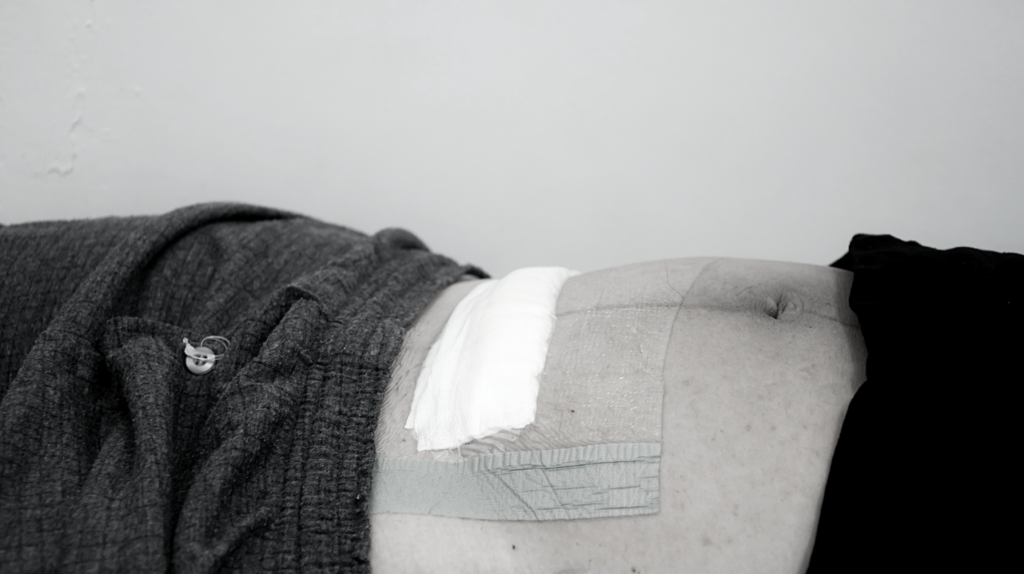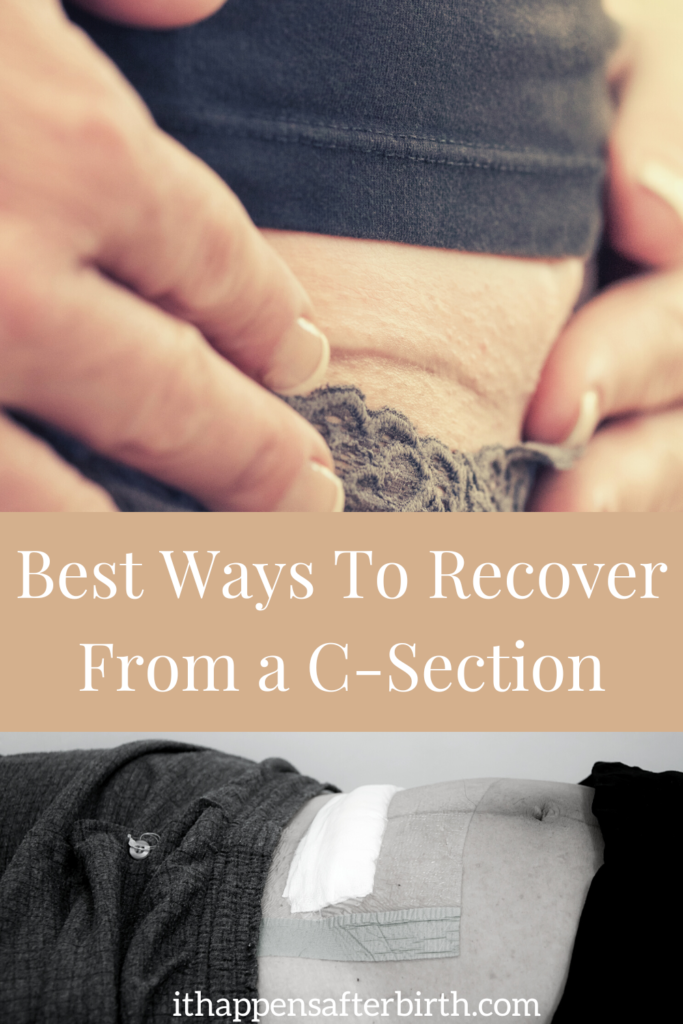In this post we will talk about the best ways to recover from a c-section.

So you’ve had a c-section (whether planned or emergency), and now you are in the midst of a painful recovery. You’d like to know some of the best ways in which to help this recovery along.
A c-section recovery is going to be different than recovery from vaginal birth in a lot of ways. It isn’t only recovering from birth, with all of its emotions and changes; it’s recovery from a major surgery. And once you’re in postpartum, healing from a c-section while navigating this very new way of life can be a lot on you shoulders.
Let’s talk about how to make it a little easier
This post is only starting at the surface, but hopefully that’s enough to get you going on this road to recover from a c-section.
Honey
If you’ve never thought about spreading honey over your incision, you’re probably not alone. It isn’t something that’s commonly prescribed to help heal your scar.
There was a study done which shows that honey not only helps to heal your c-section scar faster, it helps you to feel more satisfied with your healing. And as a bonus, it may help to take that itchy feeling away.
Manuka honey is the best option, but any raw honey will work.
Keep things moving
Exercising after having major surgery is going to be the last thing on your mind, especially with a new baby to take care of. Getting up and going for a run (or anything else as intense) isn’t going to be on your agenda for a while.
Starting with gentle breathing exercises and simple ankle rotations helps to aid in the healing process. It increases circulation and it can help to prevent blood clots.
When you’re comfortable doing that, try to get up and walk around the room once or twice, or as much as you’re able. This is going to help with that circulation too, and the overall healing process. It might feel very strange, or like your stomach is too weak to hold your muscles in anymore. Keep your stomach supported through a postpartum support girdle, or place a pillow gently along your incision. Go as slowly as you need to go.
The first time, you might only get across the room and back. Try to get a little further each day, but don’t push yourself. Stay gentle and give yourself permission to rest.
Stay within your limits
After any birth, but especially after a cesarean, it’s important to go at a pace that feels good to you. You aren’t going to bounce back or feel like yourself for a while. Give yourself time to rest. Don’t lift anything heavier than your baby for at least the first few weeks. (Your doctor will probably give you strict orders to avoid heavy lifting until you’re cleared at the 6-week checkup.)
Nothing sets healing back faster than a completely exhausted, worn-out body. And I know that with a newborn, resting is often easier said than done, but don’t push yourself any further than you need to go. If you have someone (a partner, family member, or friend) who is willing to come and help you, let them. Start slow, keep it steady, and do only what feels good to you.
Eat nourishing foods and drink plenty of water
Just like resting, sometimes eating well and drinking lots of water is easier said than done. The most important thing is going to be:
- Drinking when you’re thirsty
- Eating food
If you’re doing that, you are already starting well. If you can, focus on whole, nutrient-dense foods like bone broth, vegetables, and unprocessed sources of protein. Cooking with a new baby (and while you’re trying to recover from a c-section) can be difficult, so don’t be afraid to keep meals to a few ingredients. Something as simple as rotisserie chicken with steamed broccoli on the side (drizzled with butter or avocado oil) will be both nourishing and quick to make.
If you have someone who is willing to do the cooking for you, take them up on it!
Add a little flavor to your water for added health benefits. Some lemon juice, or cucumbers and mint in your water bottle will be both delicious and nutritious.
Keep yourself comfortable
It’s an understatement to say that you’re probably going to be in pain. The area around your incision is going to be tender and bruised for a few weeks, or more. You’re still going to have vaginal bleeding for 4-6 weeks, just the same as if you’d had a vaginal birth, and there’s going to be cramping. discomfort, and gas pains.
You’ll have different pain medications to choose from when you’re in the hospital, but once you get home it will likely be ibuprofen.
Heat is a good pain reliever- try placing a heating pad, hot water bottle, or rice pad on your stomach (above the incision) to help with cramping. Other women like to use an after birth tincture (such as this) to help with the pain of the uterus contracting back down. (there is no study proving the safety or efficacy of these tinctures, but some mothers have reported it to be beneficial to them personally.)
It’s gas pains that are one of the biggest discomforts for women as they recover from a c-section. Aside from ibuprofen and heat, there are one or two ways to help ease the pain. Avoid any drinks that are fizzy, too hot, or too cold for the first few days after birth. Eating foods that are rich in fiber and taking a stool softener can also help.
Care for yourself emotionally
As with any birth, your emotional state is very important and also very unique to you.
Your cesarean may have been planned, or it could have been the result of an unexpected complication during labor.
You may feel satisfied with how your birth went, or you may feel traumatized, alone, and wounded.
Regardless of how you are feeling, remember to focus on your emotional recovery just as much as your physical recovery. If you need to process your birth, talk to your partner, a trusted friend, your doula (if you had one), or your care provider. Reflective journaling is another good option if you are having trouble opening up to another person.
Remember that you are a strong human and a good mama. You are allowed to feel any way you need to feel about your birth, and you are allowed as much time as you need to recover.
There it is- six steps to help you start on your journey to recover from a c-section. Do you have anything you would add to this list? Anything that did or did not help you during your own recovery? Let me know in the comments.

